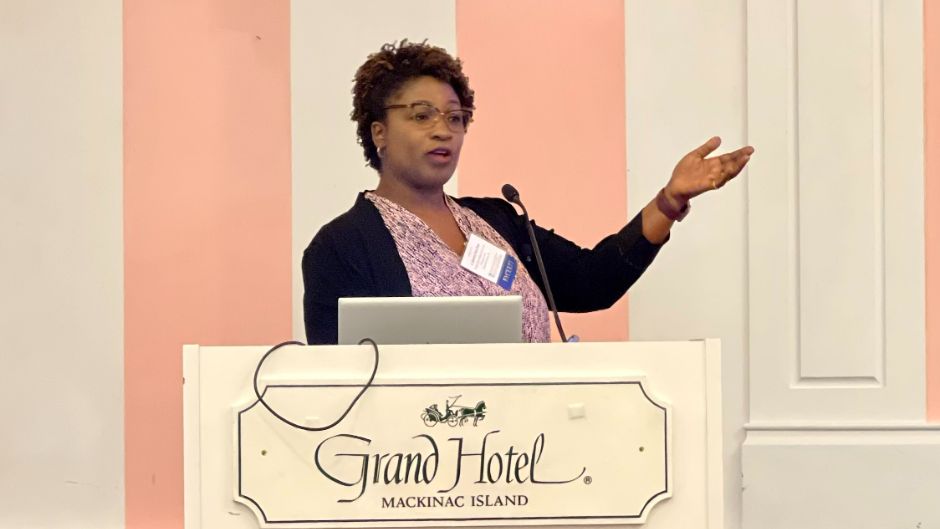Professor Jan Osei-Tutu joined the University of Miami School of Law faculty at the start of the 2024-2005 academic year.
The international intellectual property law expert focuses on the impact of IP on society. Her research centers on the connection between trade-related intellectual property, human development, and human rights. Osei-Tutu's current research projects focus on intellectual property, human rights, and cultural identities.
Osei-Tutu is also active in multiple organizations and recently led the Intellectual Property Section of the Association of American Law Schools. Committed to connecting new scholars in the field of intellectual property, she co-founded the Junior Intellectual Property Scholars Association. Additionally, she was the editor-in-chief of the African Journal of Legal Studies for five years and serves on the editorial board of the American Intellectual Property Law Association Quarterly Journal.
From British Columbia to Miami
If you were to take a compass bead from the far northwest to the farthest southeast of North America, you could tell a lot about Osei-Tutu.
Osei-Tutu grew up in Terrace, in northern British Columbia. The town of 12,000 sits on the banks of the second largest river in BC, the Skeena River, and is nestled between Hazelton Mountains to the east and the Kitimat Ranges to the west. Travel brochures tout the region's skiing, hiking, fishing, and the Kermode bear, a rare black bear whose fur is white but isn't a polar bear. The Kermode is the symbol of Terrace.
Her roots grow far deeper. Her parents left Ghana, West Africa, to attend the University of Toronto, the "Harvard" of Canada. Her mother completed a master’s in education and started her Ph.D. at U of T, while her father obtained his M.D. from U of T and then specialized in urological surgery. Her father was committed to practicing in an underserved community. As the only urologist in Northwest British Columbia, he traveled to nearby towns and indigenous communities to provide urological services. Her mother loved Terrace because she wanted a small town in a hilly region that reminded her of her hometown in Ghana.
"It was really quite interesting," said the tri-lingual Osei-Tutu. "I was the only Black girl in school, not just in my class," but "Terrace was good in many ways because I was able to participate in almost every activity you could possibly imagine, including horseback riding, downhill skiing, tennis, soccer, piano, dance, church choir, etc."
Osei-Tutu left Terrace to complete a Rotary Student Exchange in Mexico and then returned to Canada to pursue a B.A. from the University of Toronto, a J.D. from Queen's Law, and an LL.M. from McGill University. She practiced law for over a decade as an intellectual property legal counsel in Ottawa, advising the Canadian government on various intellectual property aspects of trade negotiations. She also spent a year working as a law clerk for the judges of Trial Chamber II at the International Criminal Tribunal for Rwanda in Tanzania. Osei-Tutu has been admitted to the Ontario (Canada) and New York Bars.
Since 2012, Osei-Tutu taught at Florida International University College of Law, where she helped develop the IP program at FIU. She created the fashion & design law and trademark law courses at FIU and is thrilled to see that, in addition to those who have gone into IP practice, several of her trademark law students have become trademark examiners at the United States Patent and Trademark Office.
She said she has very much enjoyed meeting the faculty at Miami Law. "They are really smart, thoughtful, interesting people," she said. "And it's a great law school doing a lot of really cool stuff. The law school has several amazing programs that relate to my scholarship. I want to contribute to the already rich IP program at Miami Law—especially international IP and the intersection between IP and human rights."
Read more about Miami Law’s Intellectual Property Law program.
Read more about Miami Law's Human Rights Law program.

